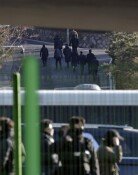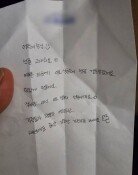Court: Directors should also be held responsible for compensation for losses
Court: Directors should also be held responsible for compensation for losses
Posted September. 04, 2021 07:36,
Updated September. 04, 2021 07:36
A South Korean court said that both CEO and other directors have the duty of care to monitor and prevent any illegal activities of a company and should be held accountable for compensation in case of a violation. The compliance oversight responsibility of the management was recognized more broadly in the judgment.
Minority shareholders of Daewoo E&C filed a lawsuit against the company’s CEO Seo Jong-wook and the other nine directors demanding compensation for the fine of 28 billion won imposed by the Fair Trade Commission due to the directors’ failure to prevent bid-rigging for the four major rivers restoration project. The directors filed an appeal case. On Friday, the Seoul High Court overturned the ruling of the first court and declared that Seo should pay 395 million won and other directors should each pay between 46.5 to 102 million won.
The first court ruled that the nine directors do not have oversight duty for the overall company, and only Seo should be held responsible. In the second trial, however, the judge said the non-CEO directors should also be responsible for compensation as they did not request any report or actions to prevent bid-rigging by executives and staff members. The decision is in line with the 2008 ruling by the South Korean Supreme Court, which recognized directors’ duty of care in oversight, and the U.S. Supreme Court’s In re Caremark International Inc. Derivative Litigation decision submitted by the plaintiffs.
“Each director has a duty of care to build a reasonable information and reporting system, as well as an internal control system, and to ensure their proper operation,” former Supreme Court justice Kim Yeong-ran said in her judgment for the 2008 suit for damages filed by Shinhan Bank against the late Daewoo Group Chairman Kim Woo-choong. The U.S. Supreme Court’s 1996 In re Caremark International Inc. Derivative Litigation decision also said that directors are held accountable for compensation in case of their failure to set up an information and reporting system for compliance oversight and their negligence in oversight.
Court Senior Judge Jung Jun-young, who ruled the second trial, was in charge of the Samsung scandal involving its Vice Chairman Lee Jae-yong. The judge rules in February this year that it cannot be considered into the assessment of a case in case of the management’s failure to effectively run a compliance oversight system.
speakup@donga.com







